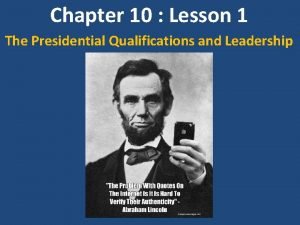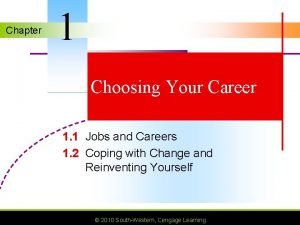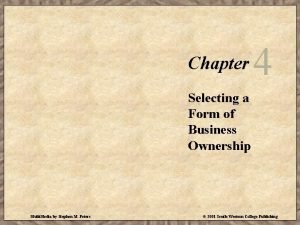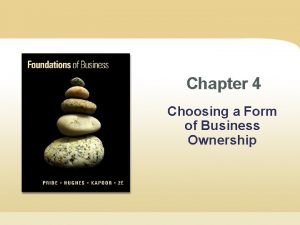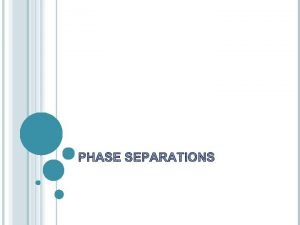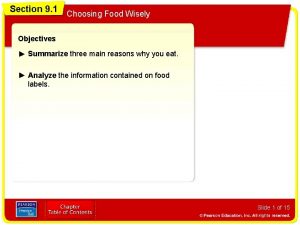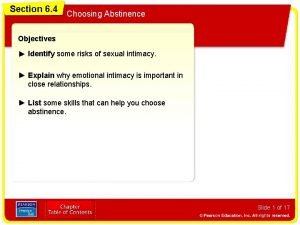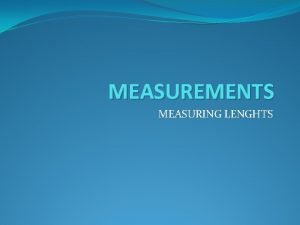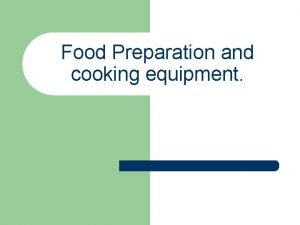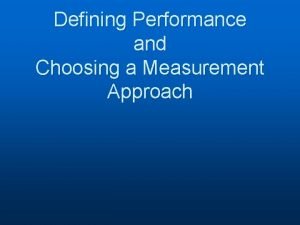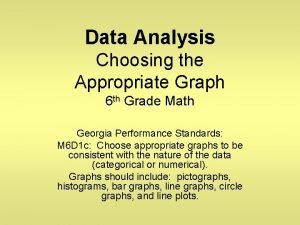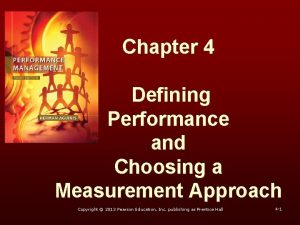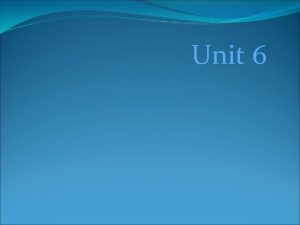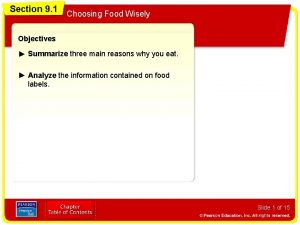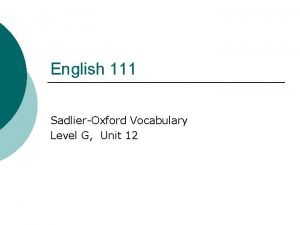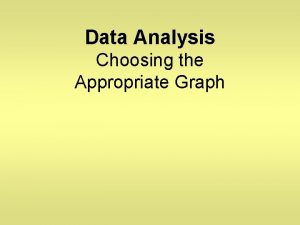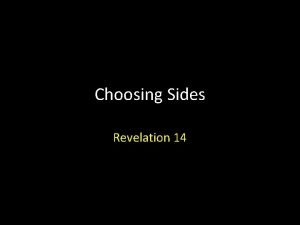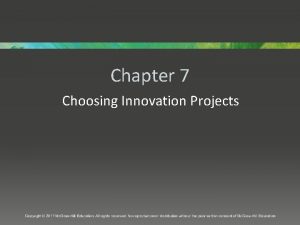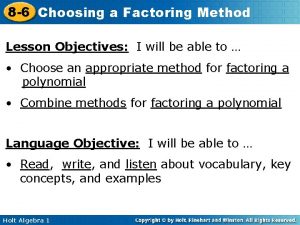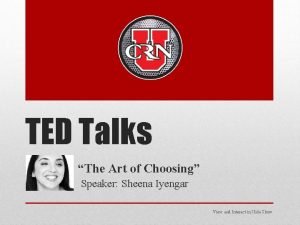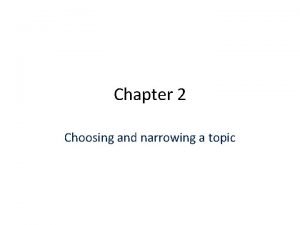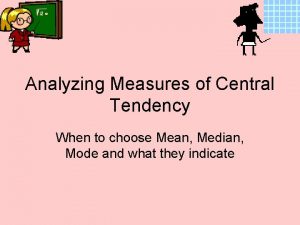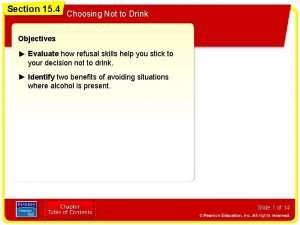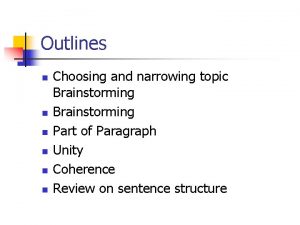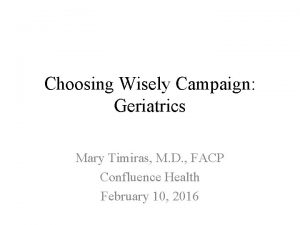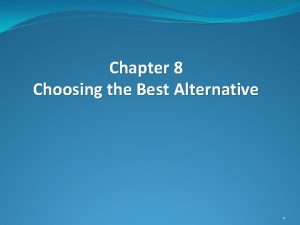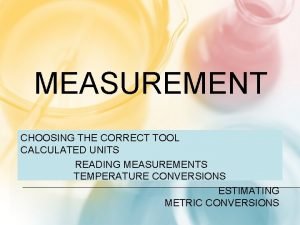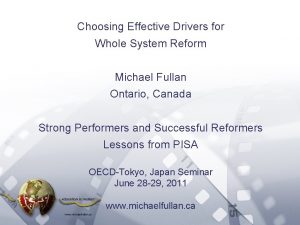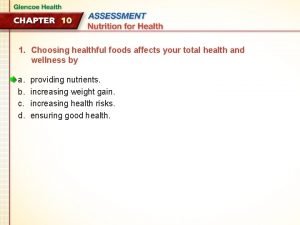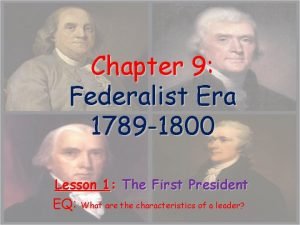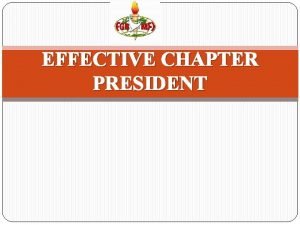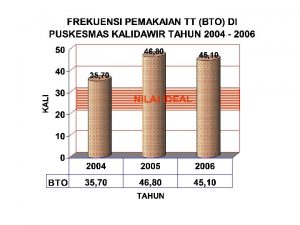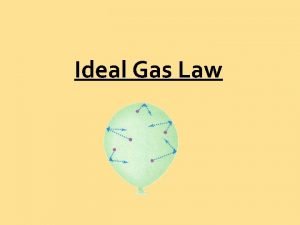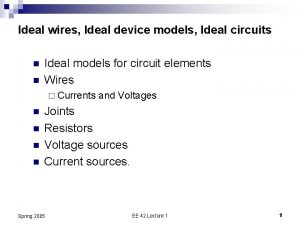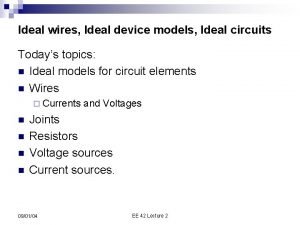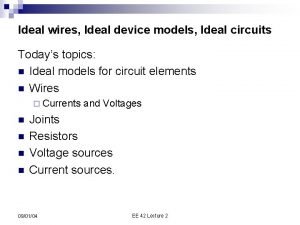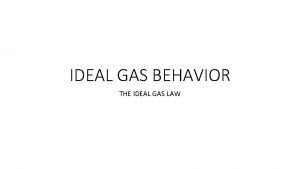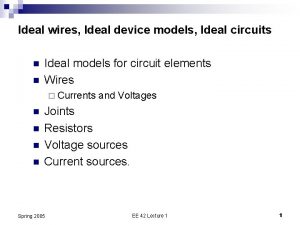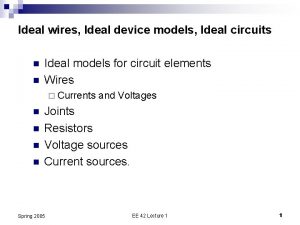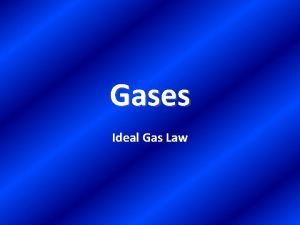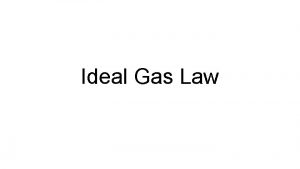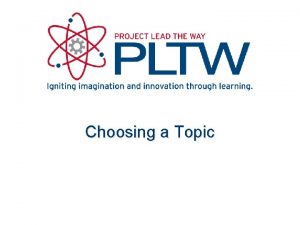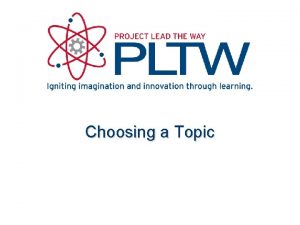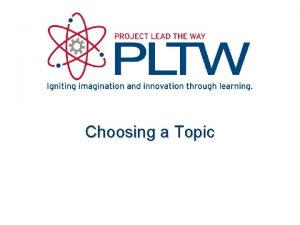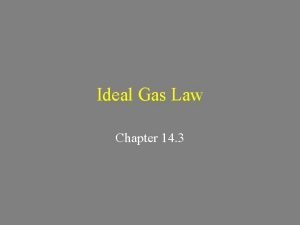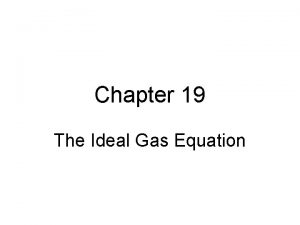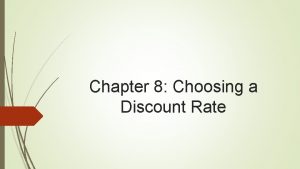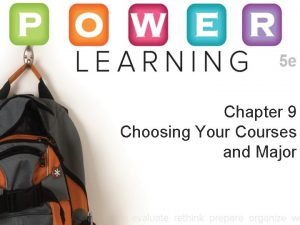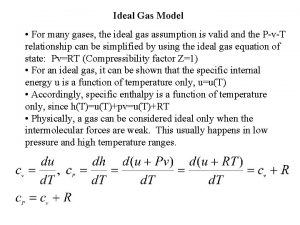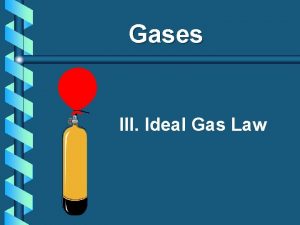Choosing the President Chapter 10 The Ideal President























































- Slides: 55

Choosing the President Chapter 10

The Ideal President • Draw a caricature of the IDEAL PRESIDENT and label the qualifications they think are most necessary to make an effective president – Use a 8 x 10 piece of paper – Draw a caricature – Label the qualifications

The Presidential Qualifications and Leadership Lesson 1

Duties of the President • Presidents have enormous power and responsibility in government • Presidents make sure the national laws are fully executed (this is the most important duty of the president); serve as commander in chief of the armed forces; appoint top officials, federal judges, and ambassadors; and meet with heads of foreign government

Presidential Qualifications according to the Constitution A. Qualifications for running for office of the President (as listed in the Constitution) • Natural born citizen • 35 years of age • Resident of the United States for 14 years FDR

Informal Requirements • Governmental Experience • Successful presidential candidates usually hold moderate political beliefs • Most presidents have shared similar backgrounds – ethnic, economic, racial and gender • Candidates for office must have access to sources for raising large amounts of money in the presidential election campaign

Leadership Skills • Understand the American public (Ex. FDR defeated Hoover in the 1932 election by a landslide) • Ability to Communicate (FDR – Fireside chats) – Watch video on Pres. Clinton • Sense of Timing – know when to introduce new policy • Ability to Compromise • Political Courage – sometimes presidents need to go against public opinion or their political party (ex. Bill Clinton – Welfare reform)

Presidential Salary, the Vice President, and Succession Lesson 2

President’s Term and Salary • The Twenty-Second Amendment limited presidents to two terms - A term is equal to 4 years - Vice presidents who take over the presidency and serve two years or less of the former president’s term may serve 2 additional terms but , may not serve more than 10 years

• Congress determines the president’s salary or compensation ($400, 000 beginning in 2001); in addition, many benefits are provided for the president while in office and in retirement. – Examples: travel allowance of up to $100, 000, Air Force One, helicopters, limousines, free medical, dental, and health care, live in the White House, domestic staff, ect…

What do you consider the most important qualification for office of president?

The Role of the Vice President (salary $227, 300) Constitutional Responsibilities 1. Takes over the presidency in case of presidential death, disability, impeachment, or resignation 2. Presides over the Senate and votes if there is a tie 3. Under the 25 th Amendment the vice president helps decide whether president is unable to carry out his duties and acts as president if this should happen

Modern Responsibilities • • • Greater access to the president Participate in policy making Involved in foreign policy Part of the National Security Council Take part in policy deliberation Watch video

Presidential Succession • The Twenty-fifth Amendment established the order of succession to the presidency and spelled out what happens when the vice presidency is vacant • The Twenty- fifth Amendment also set forth rules to be followed if a president becomes disabled. Discuss pic pg 301 video

• • • • • Presidential Succession Chart Vice President Speaker of the House President pro tempore of the Senate Secretary of State Secretary of Treasury Secretary of Defense Attorney General Secretary of the Interior Secretary of Agriculture Secretary of Commerce Secretary of Labor Secretary of Health and Human Services Secretary of Housing and Urban Development Secretary of Transportation Secretary of Energy Secretary of Education Secretary of Veterans Affairs Secretary of Homeland Security

President and Vice President – Lessons 1 & 2 1 What is the most important duty of the President? 2. Four years is a presidential _________. 3. Define the 22 nd and the 25 th Amendments 4. define Compensation 5. List the presidential benefits that the President gets beyond his salary. 6. List expenses the government does not pay. 7. What benefits will the President receive when he retires? 8. List the qualifications for president. 9. Using the chart on page 300 – Who would be next in line for the presidency after the President Pro Tempore of the senate? 10. Give two conditions in which a Vice President can take over if the President becomes disabled.

Electing the President Lesson 3

The Original System • Article II, Section 1, of the Constitution provided that the candidate receiving the majority of the electoral votes become the president • The candidate with the second-highest number of votes become vice president

What political problem could result from the vice president being the person with the second-highest electoral vote?

The Impact of Political Parties • The election of 1800 was decided by the House of Representatives • To prevent a tie vote for president in the Electoral College, the Twelfth Amendment, added to the Constitution in 1804, provided that electors must cast separate ballots for president and vice president

The Electoral College System Today • The president and vice president is elected through the Electoral College • Winner-take-all system (except Maine and Nebraska) • Electoral College cast their votes in December • Electors – a member of a political party chosen in each state to formally elect the president and vice president

Preparing to Run for President • For a political actin committee (PAC) • Register with the Federal Election Commission (FEC)

Primaries, Caucuses, and National Party Conventions First – convince members of their own political party to choose them as their presidential candidate – this is done through a series of primaries or caucuses Second – political parties host conventions – a meeting where political party members who have been chosen as delegates from each state vote for the candidate supported by their state – nominations are based on the primaries

General Election • After securing the nomination – candidates will spend vast amounts of money campaigning for the Presidency • Americans will vote in November • Electors will vote in December

Electoral College Issues • Is the Winner-take-all system fair? • It is possible for a candidate who loses the total popular vote to win the electoral vote • A third-party candidate could win enough electoral votes to prevent either major party candidate from receiving a majority • When the house of representatives must decide a presidential election, it may face several serious problems see page 306

• Critics of the electoral system have offered suggestions to improve it • Other critics believe the Electoral College should be replaced with direct election of the president and vice president

Do you agree or disagree with critics who argue that the Electoral College system should be abolished? Explain

Inauguration • January 20 th, at noon, the new president is sworn into office • Inaugural Address

Presidential Oath of Office: I do solemnly swear (or affirm) that I will faithfully execute the office of President of the United States, and will to the best of my ability, preserve, protect and defend the Constitution of the United States. "

Electing the President Lesson 3 Complete Electoral College Activity and turn in for a grade Define the key terms and answer questions # 1, 3, 4, & 5 on page 308

Structure and Functions of the Executive Branch Chapter 11

The Cabinet and the Executive office of the Executive Branch chapter 11

The Cabinet and the Executive Office of the President Lesson 1

Cabinet – advisors to the President (Current Salary $199, 700) Major Factors in Making Appointments: -Experience in a Particular Policy Area -Administrative and Supervisory Experience -Support for the President’s Goals and plans -Support from various Groups that Hold political power -Demographic diversity The first female cabinet member: Frances Perkins – Secretary of Labor

The Senate holds confirmation hearings on the president’s nominees for cabinet post. The Senate must approve of the nominee before he/she can take that position

Role of the Cabinet • Heads of the executive departments • The role of the cabinet is determined by the President • Modern presidents have turned to their White House staff and close friends for advise instead of using the cabinet

• The “inner cabinet” consist of the secretary of state, defense, treasury, and the attorney general John Kerry Jack Lew Loretta Lynch Ashton carter

Factors Limiting the Cabinet’s Role • The President does not command the full loyalty of cabinet members, even though he appoints them • Cabinet members are pressures by career officials in their departments, interest groups, and members of congress. This pressure may result in disagreements with in the cabinet over the president’s policies and plans

• With 14 members, it is difficult to maintain secrecy in matters the president considers sensitive • The president may not know and trust all members of the cabinet because the president must weigh so many factors in appointing them

Executive Office Agencies • Executive Office of the President (EOP) was created in 1939 by Congress

EOP has grown rapidly for three reasons: • Presidents keep adding new agencies • Presidents want experts nearby to advise them about complex issues • Federal programs sometimes require special staff to coordinate the efforts of several executive departments and other agencies working together

The Office of Management and Budget (OMB) is the largest agency in the EOP -it prepares the national budget that the president submits to Congress each year.

-The National Security Council helps coordinate the nation’s military and foreign policy. -The Council of Economic Advisers help the president formulate the nation’s economic policy -Presidents add and sometimes eliminate agencies to the EOP to help carry out policy (look at graph on page 322

The White House Office A. The president appoints White House staff without Senate confirmation B. The White House Office has become the most important part of the Executive Office of the President

C. The White House staff perform whatever duties the president assigns them - Gathering information and providing advice on key issues - Ensuring the executive departments and agencies carry out key directives from the president - Presenting the president’s views to the outside world - Deciding who and what information gets through to the president

Two of the most important White House staff Members are: 1. White House chief of Staff – The president’s most trusted adviser and the overseer of the work and operations of the White House and the Executive office of the President (EOP) 2. Press Secretary – one of the president’s top assistants who is in charge of media relations

Denis Mc. Donough – White house chief of staff Josh Earnest – Press Secretary

Executive Privilege • Executive privilege – the right of the president and other high ranking executive officers to refuse to testify before Congress or a court • Why? Presidents do not want information getting out to the public while still deciding on policies. • When challenged in court – the court said that presidents have some right to executive privilege, but it is not absolute

Presidents can also issue: Executive orders – Rules that have the force of a law Executive Agreement – a formal agreement between the government of two or more countries

Cabinet Departments and Independent Agencies Lesson 2

Cabinet Departments • • • Secretary of State Secretary of Treasury Secretary of Interior Secretary of Agriculture Secretary of Justice Secretary of Commerce Secretary of Labor Secretary of Defense Secretary of Health and Human Services • Secretary of Housing and Urban Development • Secretary of Transportation • Secretary of Energy • Secretary of Education • Secretary of Veterans Affairs • Secretary of Homeland Security

Independent Agencies o o National Aeronautics and Space Exploration (NASA) Low-Density Supersonic Decelerator (LDSD) General Service Administration (GSA) Central Intelligence agency (CIA)

Government Corporations o Tennessee Valley Authority (TVA) o The Federal Deposit Insurance Corporation (FDIC) o AMTRACK o United Postal Service (USPS)

Regulatory Commissions o Federal Communication Commissions(FCC) o Nuclear Regulatory Commissions(NRC) o Environmental Protection Agency (EPA) o Federal Trade Commission (FTC) o Federal Election Commission (FEC)

Ch. 11, Lesson 1 & 2 • Define Lesson 1 key terms • Lesson 1 – pg. 323 – answer questions 1, 3, & 4 • Lesson 2 – pg. 331 – answer questions 1 & 4
 Lesson 1 presidential qualifications and leadership
Lesson 1 presidential qualifications and leadership Ducks unlimited checks
Ducks unlimited checks Chapter 1 choosing your career
Chapter 1 choosing your career Business ownership
Business ownership A corporation organized to provide a social educational
A corporation organized to provide a social educational Chapter 21 lesson 2 choosing to live alcohol free
Chapter 21 lesson 2 choosing to live alcohol free Chapter 20 lesson 1 the health risks of tobacco use
Chapter 20 lesson 1 the health risks of tobacco use Ideal solution and non ideal solution
Ideal solution and non ideal solution Choosing foods wisely quiz
Choosing foods wisely quiz Choosing abstinence quiz
Choosing abstinence quiz Appropriate metric unit of typical room height
Appropriate metric unit of typical room height Choosing healthful foods lesson 25
Choosing healthful foods lesson 25 Labour saving kitchen equipment
Labour saving kitchen equipment Result approach in measuring performance
Result approach in measuring performance Appropriate graph
Appropriate graph Landors brand name taxonomy consists of
Landors brand name taxonomy consists of Approaches to measuring performance
Approaches to measuring performance Choosing the right cooking technique
Choosing the right cooking technique Unit 6 choosing the right pronoun
Unit 6 choosing the right pronoun Choosing foods wisely quiz
Choosing foods wisely quiz 17.4 choosing to be drug free
17.4 choosing to be drug free Level g unit 12 synonyms
Level g unit 12 synonyms Essential questions for data analysis
Essential questions for data analysis Choosing
Choosing Choosing innovation projects
Choosing innovation projects 7 brand elements
7 brand elements Before choosing a position or side, you should
Before choosing a position or side, you should Choosing a factoring method
Choosing a factoring method Sheena iyengar ted talk
Sheena iyengar ted talk Perencanaan lokasi adalah
Perencanaan lokasi adalah Choosing and narrowing a topic
Choosing and narrowing a topic Choosing the best measure of central tendency worksheets
Choosing the best measure of central tendency worksheets Choosing not to drink
Choosing not to drink Contoh narrowing topic
Contoh narrowing topic Choosing wisely geriatrics
Choosing wisely geriatrics Choosing the best cost effective alternatives
Choosing the best cost effective alternatives Choosing the correct tool
Choosing the correct tool Choosing the wrong drivers for whole system reform
Choosing the wrong drivers for whole system reform Your body uses carbohydrates by breaking them down into
Your body uses carbohydrates by breaking them down into Lesson quiz 9-1 the federalist era answer key
Lesson quiz 9-1 the federalist era answer key Chapter president
Chapter president Hát kết hợp bộ gõ cơ thể
Hát kết hợp bộ gõ cơ thể Bổ thể
Bổ thể Tỉ lệ cơ thể trẻ em
Tỉ lệ cơ thể trẻ em Gấu đi như thế nào
Gấu đi như thế nào Tư thế worm breton
Tư thế worm breton Chúa sống lại
Chúa sống lại Môn thể thao bắt đầu bằng từ chạy
Môn thể thao bắt đầu bằng từ chạy Thế nào là hệ số cao nhất
Thế nào là hệ số cao nhất Các châu lục và đại dương trên thế giới
Các châu lục và đại dương trên thế giới Công của trọng lực
Công của trọng lực Trời xanh đây là của chúng ta thể thơ
Trời xanh đây là của chúng ta thể thơ Mật thư anh em như thể tay chân
Mật thư anh em như thể tay chân Phép trừ bù
Phép trừ bù Phản ứng thế ankan
Phản ứng thế ankan
